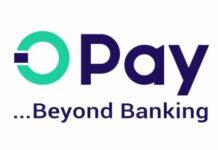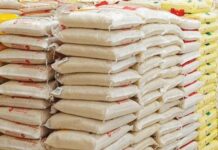NMDPRA: Why We Issued Import Licences Despite Local Refining by Dangote
CHIGOZIE AMADI
The Nigerian Midstream and Downstream Petroleum Regulatory Authority (NMDPRA) has defended its decision to issue import licences to oil marketers despite local refining by the Dangote refinery, stressing that it was due to a shortfall in local refining.
A NAN report said the downstream regulator said this in response to a suit brought before Justice Inyang Ekwo by the Dangote Refinery and Petrochemicals company, marked FHC/ABJ/CS/1324/2024, against it and the Nigerian National Petroleum Company Limited (NNPC) on September 6, 2024.
Dangote refinery had requested a federal high court in Abuja to nullify the import licences issued to NNPC, Matrix Petroleum Services Limited, A. A. Rano Limited, and four other oil companies.
The company asked the court to rule that NMDPRA violated Sections 317(8) and (9) of the Petroleum Industry Act (PIA) by granting licences for petroleum product importation.
But in an application dated and filed on December 13, 2024, NMDPRA said the current production of Dangote refinery was yet to meet the national daily petroleum products sufficiency requirement. The counter affidavit was deposed to by Idris Musa, a senior regulatory officer in NMDPRA.
“Consequently, and in compliance with Section 317 [9] of the PIA (Petroleum Industry Act), the 1st defendant (NMDPRA) issued licences to import petroleum products to bridge product shortfalls to companies with good track records of international products trading,” NMDPRA argued.
The regulatory authority said it actively monitors developments to determine when locally refined products will meet Nigeria’s daily petroleum products needs, adding that the agency ensures competition, prevents abuse of dominant positions, and stops monopolies in Nigeria’s oil and gas sector.
“The Import volume to be allocated between participants (that is licensed importers) by the 1st defendant is based on the criteria to be setout taking into account the respective refining output in the preceding quarter of the year, the share of active wholesale customers, competitive pricing and prudent supply, storage and distribution track records,” NMDPRA said.
According to the NAN report, NMDPRA maintained that it could not depend on the Dangote refinery’s claims on diesel and jet oil production capacity because it lacked scientific evidence.
Due to this, NMDPRA said it decided against giving Dangote refinery the sole right to cater for the Nigerian market.
It noted that after considering the current state of affairs and oil production output at the preceding quarter before the filing of the suit, the regulator felt it would be premature and to suspend the importation of petroleum products for other entities.
It pointed out that the present market structure of local refining would result in a monopoly with its pricing implications and put the nation’s energy security at risk, stressing that Nigeria’s energy security is assured only through multiple supply sources.
Besides, NMDPRA addressed Dangote refinery’s argument against a 0.5 per cent levy, insisting that it aligns with Sections 47(2)(c) and 52(7) of the PIA, and that the levy must be paid at wholesale points by customers, not producers, sometimes it said Dangote refinery was aware of.
“The plaintiff (Dangote) cannot claim not to be bound by local laws due to its being in a free zone, whilst seeking to take the benefits of the same local laws. The plaintiff is to remit such levies to the 1st defendant not later than 21 days following the month of the sale,” he said.

























